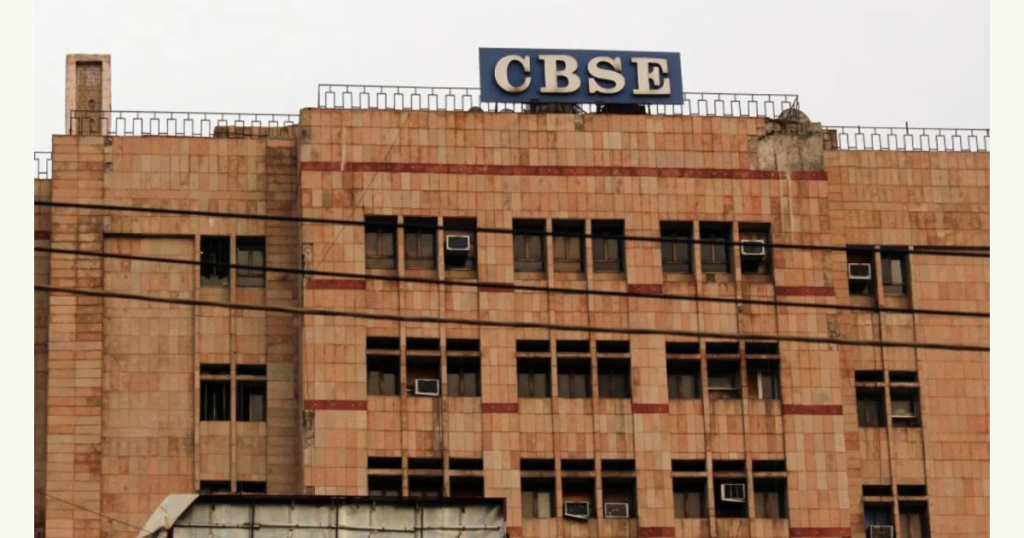CBSE 10th and 12th board exams 2026 bring new changes: two phases for Class 10, revised paper format, result dates, and optional improvement exam.

The Central Board of Secondary Education (CBSE) has introduced several changes to the Class 10 and 12 board exams for 2026, aiming to give students more flexibility, improve assessment accuracy, and align the exam system with modern learning objectives. From revised formats to dual exam phases, here’s a detailed look at what students should prepare for in the 2026 academic year.
CBSE Class 10 and 12 Exam Dates Likely from February 15
While CBSE is yet to officially announce the 2026 board exam dates, students can anticipate a familiar timeline. In the past three academic years, exams for both classes 10 and 12 began on February 15. Specifically:
- 2023 exams: February 15 – April 5
- 2024 exams: February 15 – April 2
- 2025 exams: February 15 – April 4
Considering this pattern, it’s expected that the 2026 CBSE board exams will also start from mid-February, with Class 10 conducted in two phases, while Class 12 will follow a single-phase schedule.
Class 10 Exams Split Into Two Phases from 2026
A significant structural change is coming for CBSE Class 10 students — from 2026 onwards, their board exams will be conducted in two phases:
- Phase 1 (Mandatory): Held in February, this will be the main board exam.
- Phase 2 (Optional): Scheduled in May, this is designed for students who wish to improve their performance in up to three subjects (Science, Maths, Social Science, or languages).
However, it’s important to note that students who miss three or more subjects in the first exam will not be allowed to appear for the second phase. Instead, they will be placed in the “Essential Repeat” category and can only reappear in the next year’s main exams.
For Class 12 students, the exam will continue to be held in a single phase in February, with no optional second paper available.
New Paper Pattern: MCQs + Descriptive Sections
Another major update is the introduction of a two-part paper structure starting in 2026. CBSE question papers will now feature:
- Section A: Objective multiple-choice questions (MCQs)
- Section B: Traditional descriptive or long-answer questions
In addition, core subjects may be offered at two levels — Standard and Higher — allowing students to choose based on their learning goals and career aspirations. This flexible approach is designed to reduce pressure while also helping students better demonstrate their academic skills.
Results and DigiLocker Access
Results for CBSE exams in 2026 will also follow a phased release pattern:
- Class 10 (Phase 1 – February): Results expected in April
- Class 10 (Phase 2 – May): Results to be declared in June
- Class 12: Results likely by April
Students’ board exam performance will be uploaded on DigiLocker, the government’s secure digital platform. For Class 10 students opting not to appear in the improvement exam, the marks from the February exam will be final and valid for Class 11 admissions.
Who Can Take the Optional Exam in May?
CBSE’s optional exam in May is open to Class 10 students looking to enhance their scores in up to three subjects. This provides a second chance for those aiming for better performance — but only under certain conditions.
Students must appear for the February phase first and should not be absent in more than two subjects. If a student fails to meet this requirement, they will not be eligible for the improvement exam and must instead retake the entire exam cycle the following year.
Compartment Exam Rules Updated
CBSE has also revised its rules for compartment exams. If a student receives a compartment in the February exam, they will be eligible to sit for the second exam in May under the “Compartment Category”.
However, additional subjects cannot be added after clearing Class 10 or 12. Students will also not be allowed to appear in stand-alone subjects — those not taken during the regular exams — according to the CBSE guidelines.
A More Student-Centric Exam Structure
With these changes, CBSE aims to build a more student-friendly and flexible exam framework, where students can improve their scores without waiting an entire year and better showcase their abilities through varied question formats. These updates reflect a shift toward competency-based learning and continuous assessment, in line with the National Education Policy (NEP) 2020.
Students are advised to stay updated via the official CBSE website and begin early preparations to make the most of these new opportunities.
Also Read: IPU Launches 3-Year LLB & Global Dual Degree MSc Programme
IIM Lucknow unveils flexible MBA for working professionals with hybrid learning model